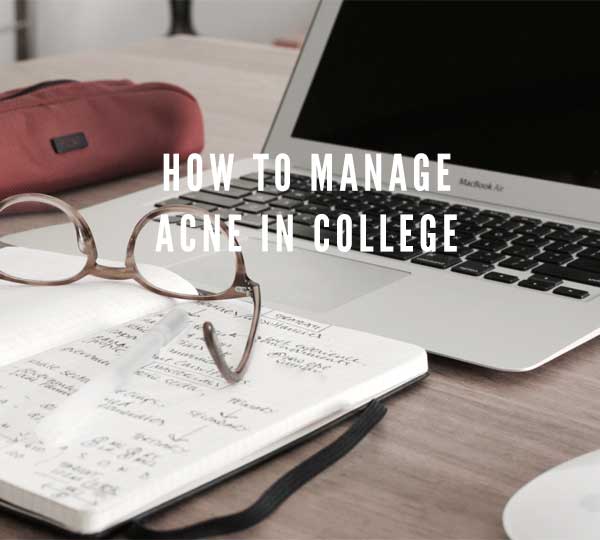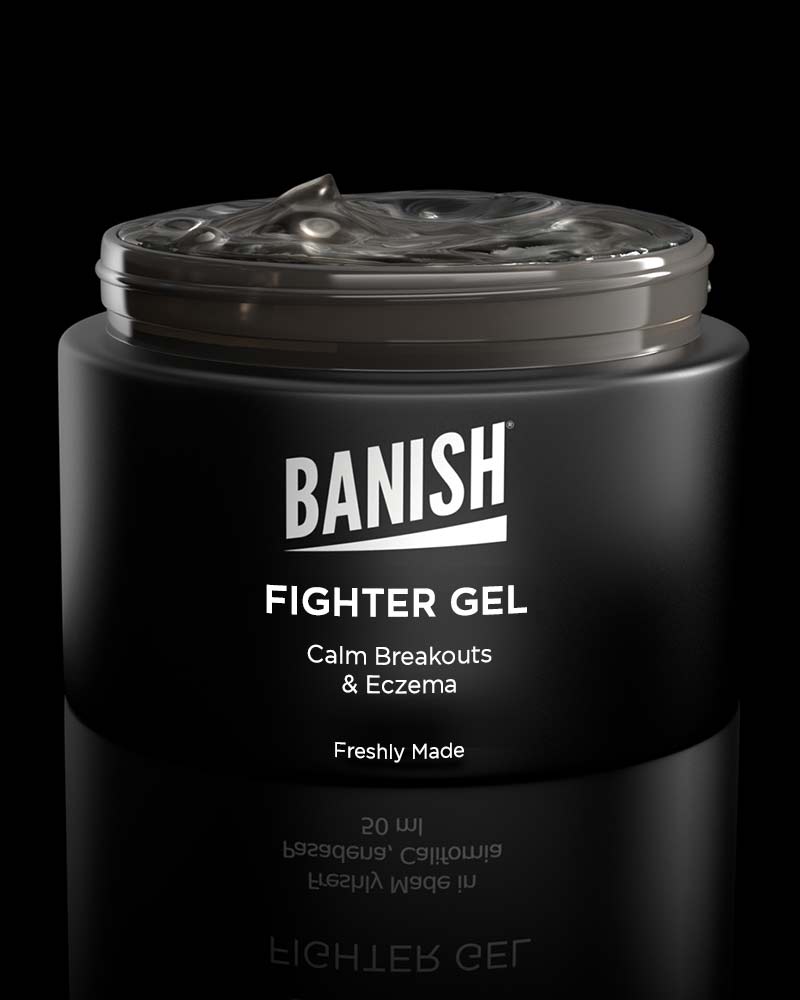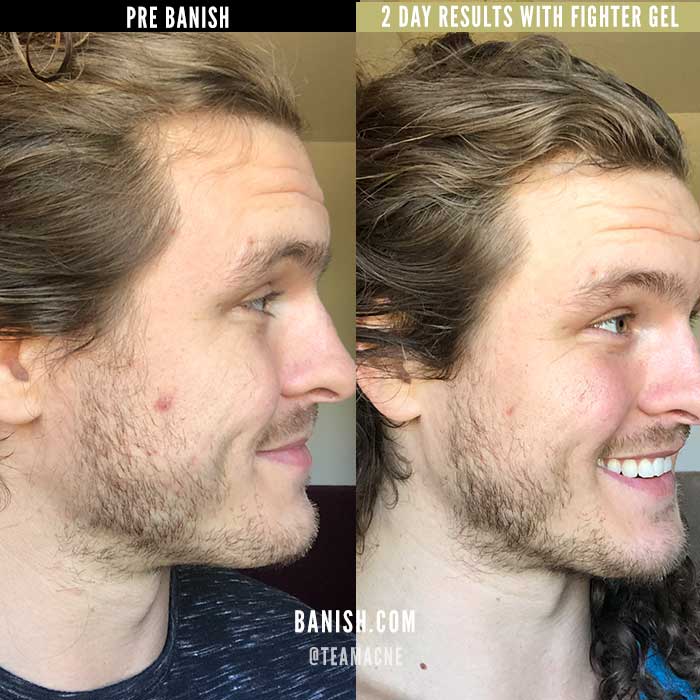Can Hydrogen Peroxide Be Used To Treat Acne?
Many of you may have figured that since hydrogen peroxide is anti bacterial, that it can be used on acne too right? Well, before you try using hydrogen peroxide on acne, first let's discuss if it's safe to use hydrogen peroxide to treat acne.
In this article, we'll be talking about what hydrogen peroxide is, what it's used for, and if it's safe for treating acne or not.
WHAT IS HYDROGEN PEROXIDE?
Hydrogen peroxide is a clear liquid that is used as an antiseptic.
Hydrogen peroxide is normally being used as a disinfectant and it kills bacteria through an oxidation process. This means it has antibacterial uses and has amazing acne fighting capabilities if you have whiteheads for some people.
You can find hydrogen peroxide in commercial supermarkets/groceries at its varying concentrations, with the most common at 3%.
However, it may also contain inactive ingredients that may cause allergic reactions or other problems.
The downside is that Hydrogen peroxide can also damage your own cells too including our fibroblasts which are essential to heal and repair skin.
Facts about hydrogen peroxide:
- Your white blood cells produce hydrogen peroxide to signal an immune response to kill bacteria.
- According to a recent study by Harvard Medical School, “the body uses hydrogen peroxide to sound the alarm when a tissue has been injured. As a direct result of this hydrogen-peroxide red alert, white blood cells come to the aid of the wounded site.”
Is Hydrogen Peroxide Good For Acne? What Experts Say
There are mixed reviews on hydrogen peroxide for acne. Some say that hydrogen peroxide can be a potential aid in treating zits and pimples while some say that it could bring more harm than good.
Pros:
There is also a small study that showed hydrogen peroxide had results on reducing acne lesions compared to benzoyl peroxide too.
However note that this was a cream that contained a stabilized version of hydrogen peroxide versus using straight hydrogen peroxide from the drugstore.
Hydrogen peroxide would be a short term use case and wouldn't work for blackheads or deep cystic acne. You need to get to the root cause of acne.
Hydrogen peroxide, on the other hand, is an effective disinfectant, but it doesn't have enough documented research in terms of treating acne breakouts. In fact, "there is no proof that it can safely and effectively treat acne.” – Jeanine Downie, board-certified dermatologist
Cons:
Hydrogen Peroxide could cause minor irritation to skin especially when used together with other common acne treatments. The additional irritation can lead to increased inflammation and breakouts.
While hydrogen peroxide could aid in reducing acne and acne causing bacteria, the downside is that uncontrolled production and breakdown of hydrogen peroxide could damage the healthy tissue in skin and inhibit the wound healing process. This could result in a increased chance of acne scarring which may be permanent.
Another study found a link between the hydrogen peroxide naturally produced by the body and acne inflammation. People who had inflamed acne had higher amounts of naturally produced hydrogen peroxide compared to the control group.
Once, the group was given something to stop the hydrogen peroxide production by their white blood cells, the inflammation calmed down in their acne.
How To Use Hydrogen Peroxide To Treat Acne
If you have some inflammatory acne and want to try using hydrogen peroxide on it here's a general guide. Before using hydrogen peroxide in treating your acne, it’s best to consult with your dermatologist first should you feel the need to use this. Never ever use this product without even consulting your trusted dermatologist.
To use hydrogen peroxide on your skin, you’ll want to dilute it to a 1 percent concentration. Be sure to read the label carefully.
How to use hydrogen peroxide:
- Dilute hydrogen peroxide to a 1% concentration (if treating acne or skin).
- How to dilute: For 3% hydrogen peroxide, mix 3 tablespoons of water and 1 tablespoon of hydrogen peroxide.
- Once the mixture is ready, use a cotton swap and apply it over the acne.
- Rinse it off after 5 minutes and pat dry. You can repeat this up to two days, but if you don't see improvement discontinue use.
- Use an oil-free moisturizer if skin feels dry.
People who choose to use it, particularly those with moderate to severe inflammatory acne, must take great care when using hydrogen peroxide.
Side Effects Of Using Hydrogen Peroxide For Acne
When misused, hydrogen peroxide may bring about a lot of negative side effects on your skin.
Possible side effects of hydrogen peroxide include:
- Skin irritation
- Serious skin burns and blisters
- Redness
- Allergic reactions
- Can be fatal if injected into the body or an open wound as it could create oxygen bubbles that block the blood flow and lead to embolisms.
- Dangerous when inhaled or swallowed.
- Diluted hydrogen peroxide can still have rather damaging and drying effects on skin
- It could damage your eyes
Research suggests that inflammation is an important factor in acne development, and irritation can cause inflammation. This can worsen the discomfort of inflammatory acne by increasing redness, itching, and pain.
What Are Better Alternatives For Treating Acne?
Using hydrogen peroxide on acne blemishes is a short-term solution that can have long-term consequences such as acne scarring. Keep your skin's health in mind and weigh the different options when it comes to treating your acne.
There are at least 3 better alternatives for treating your acne:
1. Benzoyl peroxide
Benzoyl peroxide is a popular acne-fighting ingredient but as mentioned in a previous article, it has some negative side effects.
In addition to removing excess oil and dead skin cells, benzoyl peroxide uses oxygen to help kill acne-causing bacteria beneath the skin.
While benzoyl peroxide kills bacteria and can be effective in removing excess oil and dead skin cells, it can irritate the skin by causing dryness, redness, burning, and stinging.
If you have sensitive skin, benzoyl peroxide is not the acne treatment for you.
2. Salicylic Acid
Salicylic acid is a beta-hydroxy acid best known for its role in clearing breakouts, and is gentler on the skin than benzoyl peroxide.
3. Alpha Hydroxy Acid
AHAs help unclog pores and reduce inflammation, and can even help prevent new breakouts from forming by keeping pores clear and visibly reducing the appearance of pore size. There are different concentration and formulations for alpha hydroxy acids so any skin type can use alpha hydroxy acids as long as you have a product that works for you.
Generally speaking, it’s not a good idea to use hydrogen peroxide on your skin at all — even though there are plenty of websites that tout it as a health and beauty aid that can do anything from whitening your nails to softening calluses on your heels.
Don’t rely on hydrogen peroxide as your regular, primary acne treatment, and if you do decide to use it, use with caution.
References:


























Leave a comment
All comments are moderated before being published.
This site is protected by hCaptcha and the hCaptcha Privacy Policy and Terms of Service apply.